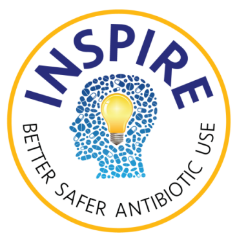SHEPheRD
(PIs: Michael Klompas, MD MPH, Susan Huang, MD, MPH)
The Safe Healthcare, Epidemiology, and Prevention Research Development (SHEPheRD) Program, funded by the Division of Healthcare Quality Promotion (DHQP), within the Centers for Disease Control and Prevention (CDC),allows the CDC to fund innovative approaches to prevent healthcare-associated infections (HAIs) and antibiotic resistance across the healthcare spectrum/ Harvard Pilgrim Health Care Institute (HPHCI), a SHEPheRD contract holder since 2011, is now participating in the 3rd iteration of the 5-year contract mechanism. The three CDC master contracts have funded the following 6 projects, with additional details about the INSPIRE trials included below.
- Enabling Quality Measurement through Health IT: Electronic Support for Public Health — Vaccine Adverse Event Reporting System (ESP:VAERS) (PI: Michael Klompas, MD MPH)
- Shared Healthcare Intervention to Eliminate Life-threatening Dissemination of MDROs in Orange County (SHIELD OC) (PI: Susan Huang, MD MPH)
- Preventing influenza and other respiratory viral disease in pediatric chronic care facilities: influenza vaccination, cost of illness, and infection control (PI: Grace Lee, MD, MPH)
- Intelligent Stewardship Prompts to Improve Real-Time Empiric Antibiotic Selection (INSPIRE) (PI: Shruti Gohil, MD MPH)
- Harnessing Electronic Health Records to Enhance Reporting to the Vaccine Adverse Event Reporting System (VAERS): Phase 2, Implementation and Update (PI: Meghan Baker, MD ScD)
- Electronic Support for Public Health-VAERS (ESP-VAERS) for COVID-19 (PI: Meghan Baker, MD ScD

INSPIRE
(PIs: Shruti Gohil, MD MPH, Susan Huang, MD MPH, Richard Platt, MD MSc)
Up to 40% of patients who are prescribed antibiotics in U.S. hospitals either do not require these drugs or receive inappropriate antibiotics for the condition being treated. Moreover, inappropriate antibiotics are often broad-spectrum, empirically prescribed in case of infection due to multidrug-resistant organisms (MDROs), despite the low risk of MDRO infection in the vast majority of clinical settings.
Funders: Centers for Disease Control and Prevention, National Institute of Allergy and Infectious Diseases